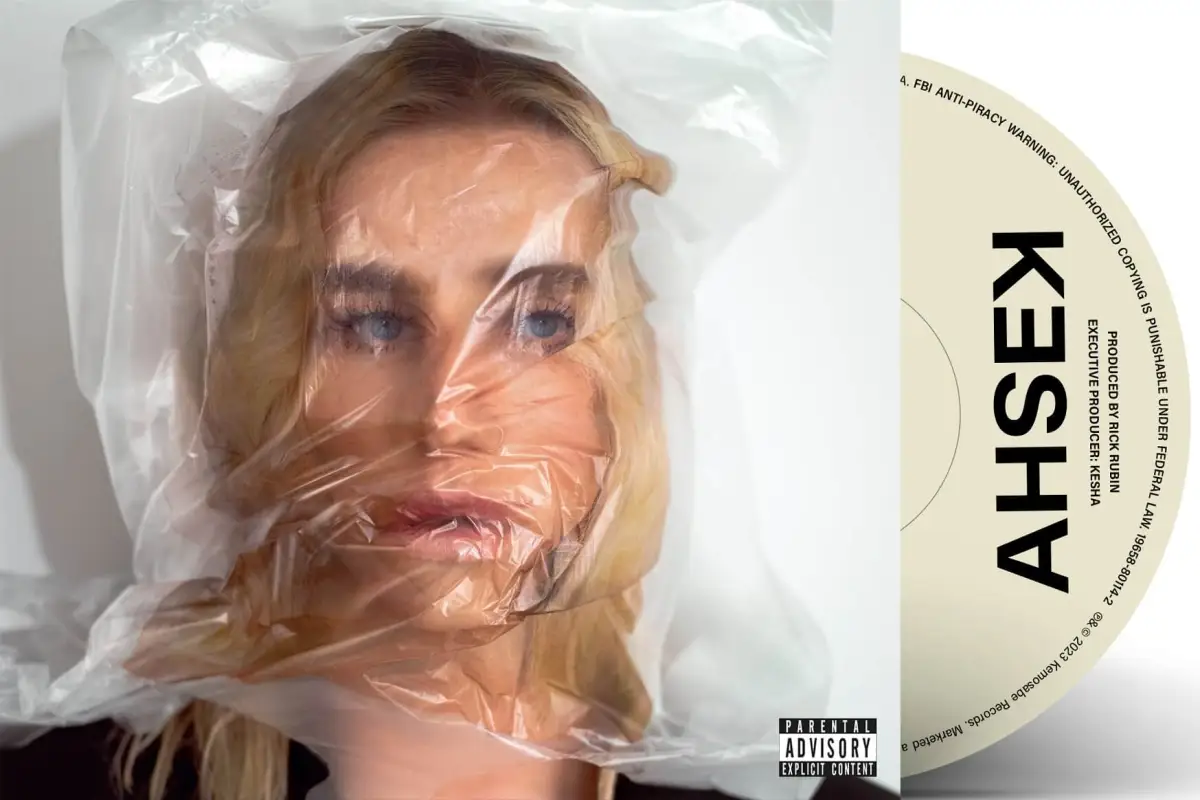Ever since Kesha came forward with abuse allegations against producer and former Kemosabe Records label head Lukasz “Dr. Luke” Gottwald in 2014, her music has reflected both her gnawing need for freedom (which the court refused to grant her when she asked to be released from her recording contract) and a deep, aching desire to write and perform music that’s completely her own. On Gag Order, her fifth and final album with Kemosabe, the now-36-year-old artist expertly walks the line between tongue-in-cheek references to her years-long legal battle against Gottwald, gut-deep and self-destructive anger, and unfettering joy.
Gag Order is both the natural successor to Kesha’s last two studio albums, 2017’s Rainbow and 2020’s High Road, and a new experiment in sound and technique. She reminds listeners (and non-believers) why she’s a Grammy-nominated singer, songwriter, and producer, hitting more than a few soul-splitting high notes and digging deeper into the sounds she’s climbed into the pocket of in her recent work.
Gag Order‘s third single, “Only Love Can Save Us Now,” is a party anthem about self-hate and murderous rage with a Peaches sample and a gospel choir backing Kesha as she growls, “F*** yeah, I’m selfish, shut up, eat your breakfast / I would kill for secrets, all of mine been leakin’ / I don’t got no shame left, baby, that’s my freedom.”
Her lyrics continue to honor her trauma, even when she chokes on it. “There’s a fine line between what’s entertaining / And what’s just exploiting the pain / But hey look at all the money we made off me,” she half-speaks in “Fine Line,” another single. The balancing act she talks about in this song is thoroughly explored on Gag Order, weaving between 13 songs that span nearly 40 minutes of music.
In “The Drama,” she croons, “There’s a violence in the silence / And it’s coming for me / The paranoia’s creeping closer, swimming in my head like a great white.” Desperate for an outlet, she admits to self-destructive behavior and still sings about wanting to believe people are inherently good, despite “the things I’ve seen.” The song ends with her chanting, “In the next life I want to come back as a house cat,” while a slow, eerie sample from The Ramones’ “I Wanna Be Sedated” takes on a new vibe in Kesha’s gravelly crawl.
“Too Far Gone” is a melodious and trippy ballad that once again brings in a choir to underscore how agonizing it is to feel like you’ve lost yourself to trauma, especially in such a public manner. Despite the pain, however, Kesha is still determined to hope, even when it makes time move even more strangely. “Sometimes, I add up all my wasted time / Sometimes, I just like seeing grown men cry / Think I killed the part of me that I like,” she lilts, right before diving into a heart-wrenching chorus reminiscent of her powerful ballad “Praying,” from Rainbow.
In addition to unpacking and examining her own feelings and thoughts around the last decade, Kesha acknowledges the feelings of her support systems. Her mom gets more than one shoutout as Kesha rails about how absurd it is that she’s been punished for her loved ones and fans speaking out on her behalf, especially on social media. The moving, spacey love ballad “All I Need Is You” feels simultaneously like a deeply private journal entry about a painful breakup and a sappy reminder for a long-term partner about how much they mean.
Because Gag Order spans so many disparate emotions and sounds, it can at times feel disjointed—which might be the point. “When’s it gonna end?” Kesha cries in “Living in My Head,” a hymn-like tune that sounds like it was written around a campfire during an especially low moment. The party girl identity she was allegedly forced into by Dr. Luke at the start of her career may not even be part of who she is now. Whatever High Road had to say about reclamation, Gag Order has to tackle from the perspective of a woman who’s had three more years to work out her feelings in the wake of a pandemic that’s deeply affected the entire world’s mental, physical, spiritual, and emotional health.
If anything, Kesha’s fifth studio album is a laser-focused study of the fact that healing is never linear. It isn’t always cathartic, no matter what pop culture expects of women exposing their rawest vulnerabilities. Real life doesn’t necessarily offer neat moral lessons. It doesn’t deliver on expectations. For Kesha, whose trauma was turned into a circus for public consumption, there are even more pitfalls in the quest to move on and shoulder less of those horrors. Gag Order embodies all of that and more. It doesn’t fully reveal itself after one, two, or even a dozen listens. It’s complex and deeply personal and still oh so carefully curated to mind the same legal system that didn’t offer Kesha any of the same dedication to fulfilling its job for her. Despite that, she’s finally free.
Gag Order is now available for purchase and streaming.
(featured image: RCA Records)








